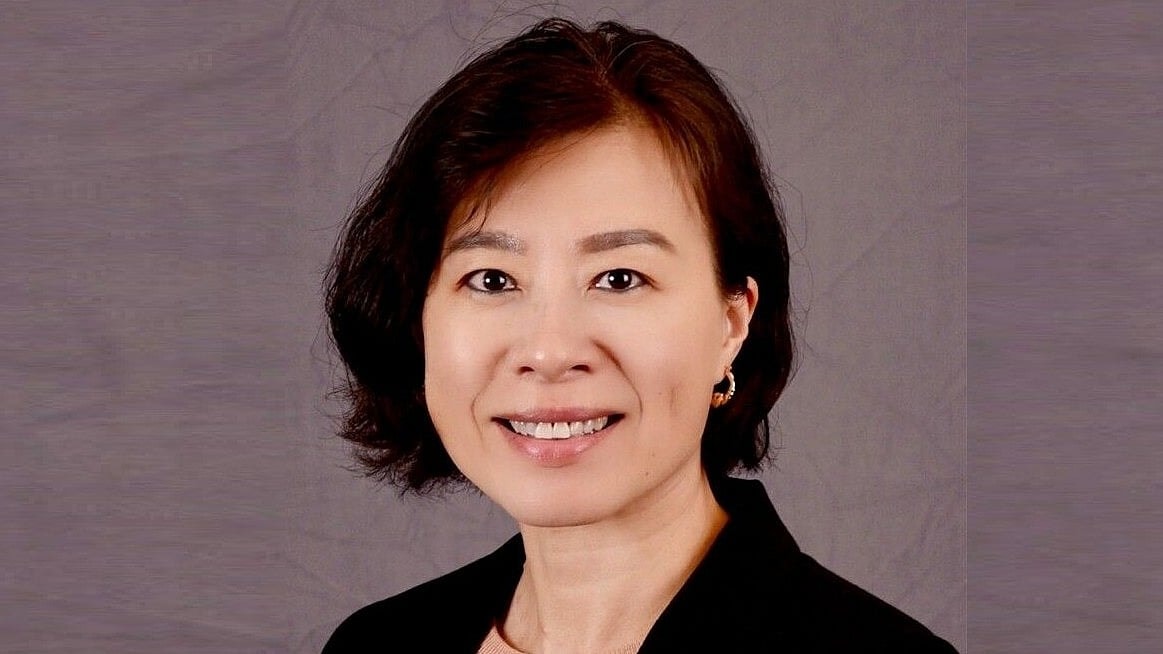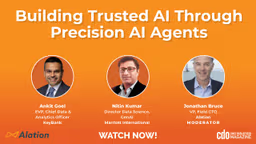Data Analytics
(US & Canada) VIDEO | Involve Data Engineers To Operationalize Data Science In Business Roles — Indiana Farm Bureau Insurance D&A Executive Director
Hong Gao, Executive Director of Enterprise Data and Analytics, Indiana Farm Bureau Insurance, speaks about the governance approach towards new data and legacy data, roles and responsibilities of data engineers, analysts, and data scientists.
Written by: CDO Magazine Bureau
Updated 6:24 PM UTC, Wed September 13, 2023

Hong Gao, Executive Director of Enterprise Data and Analytics, Indiana Farm Bureau Insurance, speaks with David Zhao, Managing Director of Coda Strategy, in a video interview about the governance approach towards new data and legacy data, roles and responsibilities of data engineers, analysts, and data scientists.
At the onset, Gao discusses the difference between the governance approach to new data versus legacy data. Regarding new data, she states that the focus remains on managing, utilizing, and assessing whether the data should be kept in silos and how to publish and disseminate it.
Gao comments that governance stays at the core of everything as it plays a critical part in overall data management. Considering third-party data as new data, she affirms that when looking at third-party data, the business needs around that data are considered first. The company gets the data it intends to use based on the need.
Gao elaborates that after understanding the intention behind using the data, the company engages in adoption and assesses whether to integrate the data into an operational system or put it in a data warehouse as a component.
In continuation, Gao mentions that the organizational admin policies are mainframe-based, so the mainframe is highly secure. Even then, there are data integrity issues as the data in legacy platforms are vendor products adopted over the years.
However, the company checks numerous rules every day to see if any data is off-record or missing. She maintains that automated processes are used to analyze any disparity and problems. When necessary, they also engage the mainframe to investigate further.
“A part of governance is ensuring people understand the data.”
Hong Gao | Executive Director of Enterprise Data and Analytics, Indiana Farm Bureau Insurance
Moving forward, Gao states that another part of governance is ensuring people understand the data and agree with how it is measured.
Recalling an incident, she shares how once she recorded covering 20 policies a week, whereas the business agent claimed to have 23 policies. The agent had made sales that had not been approved in underwriting, meaning, it was not legitimate business.
According to Gao, a lack of agreement on data led to confusion, making it unclear who was right and what to consider. Therefore, she emphasizes the need for data literacy and creating agreement on definitions, stressing the importance of accurate data.
Commenting on the role of data specialists, she reckons how the role has evolved significantly in both her workplace and in the conversations she has had with her peers. Gao divides data specialists into two categories: data engineers and data analysts. Engineers integrate data into a logical and easily available format while analysts or visualization experts build a data semantic layer and models.
Delving further, Gao states that the roles and responsibilities of data citizens and power users depend on the size of the company and the areas of the business. At her company, these roles are centralized with other data professionals within the enterprise data management team. The team is responsible for developing models, reports, dashboards, and visualizations.
Highlighting data scientists, Gao states that data scientists have a very particular set of responsibilities, including some of the skills of both a data engineer and an analyst. The core duty of a data scientist resides in advanced data analytics, data mining, and R&D initiatives on the data that require solid statistical and mathematical skills.
Gao asserts that data scientists must be experts in predictive analytics, AI, machine learning, and model development. In conclusion, she opines that data scientists are required to involve data engineers to operationalize AI products into business roles.
CDO magazine appreciates Hong Gao for sharing her invaluable data insights with our global community.





